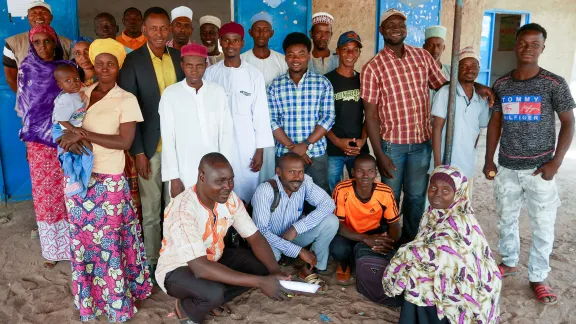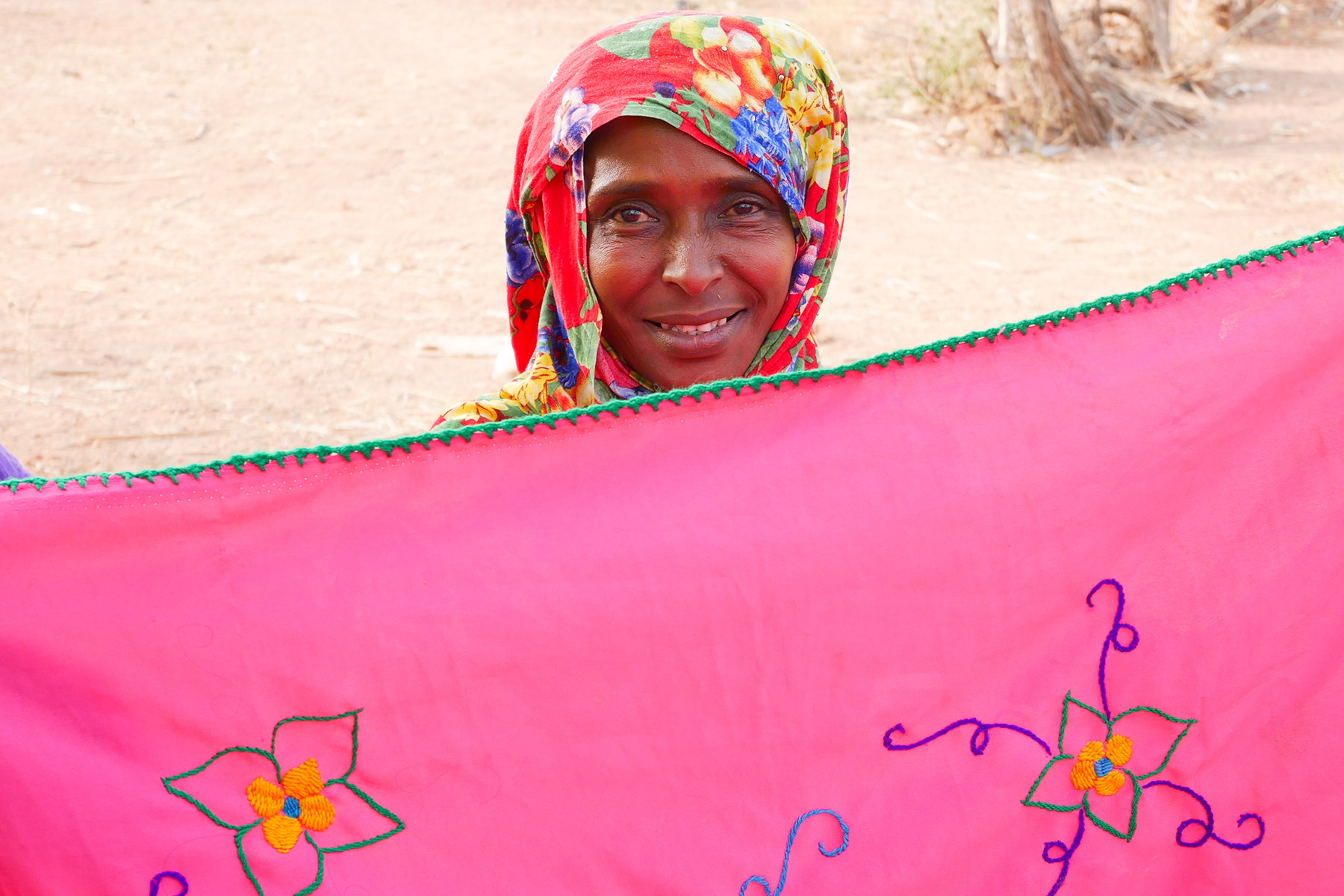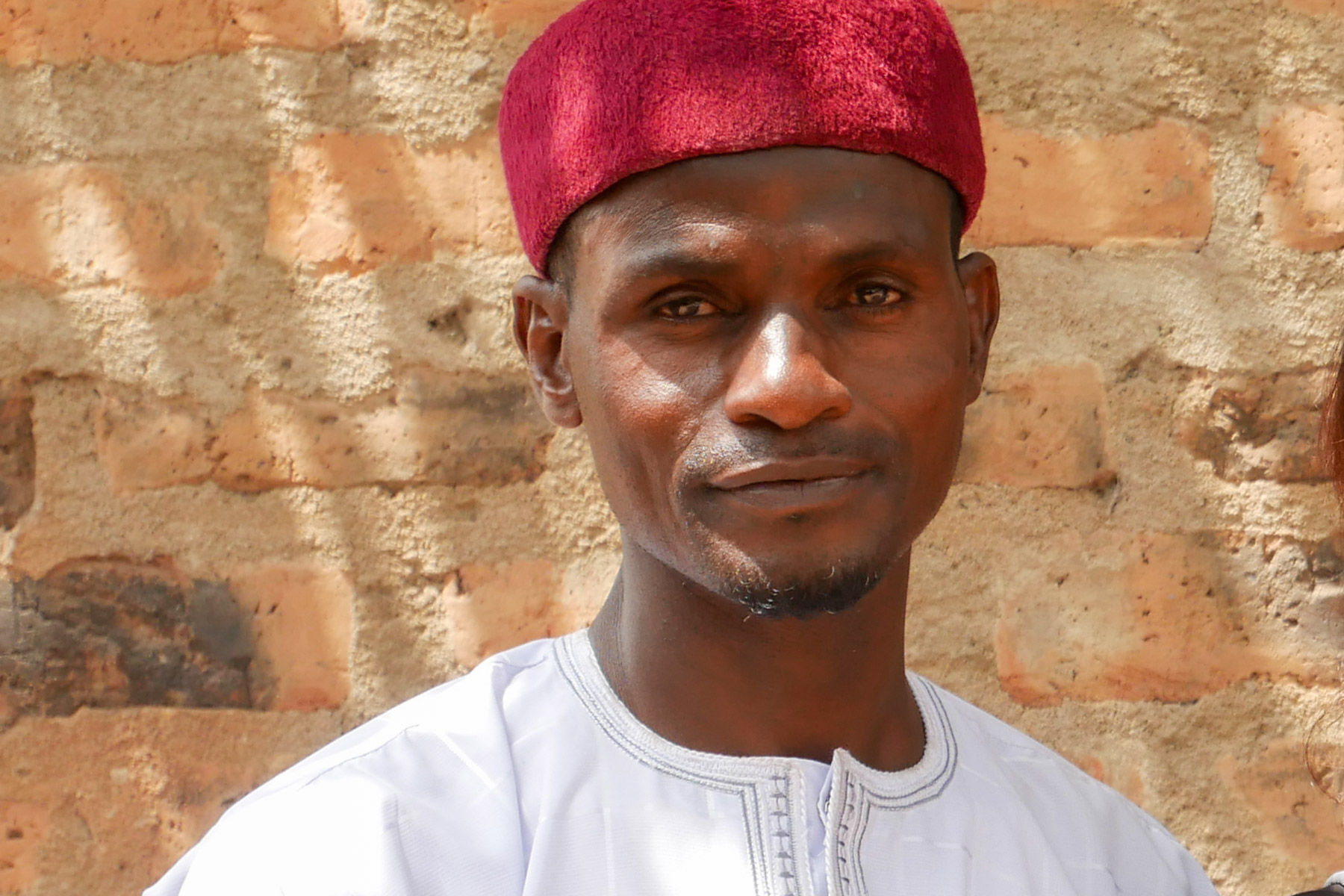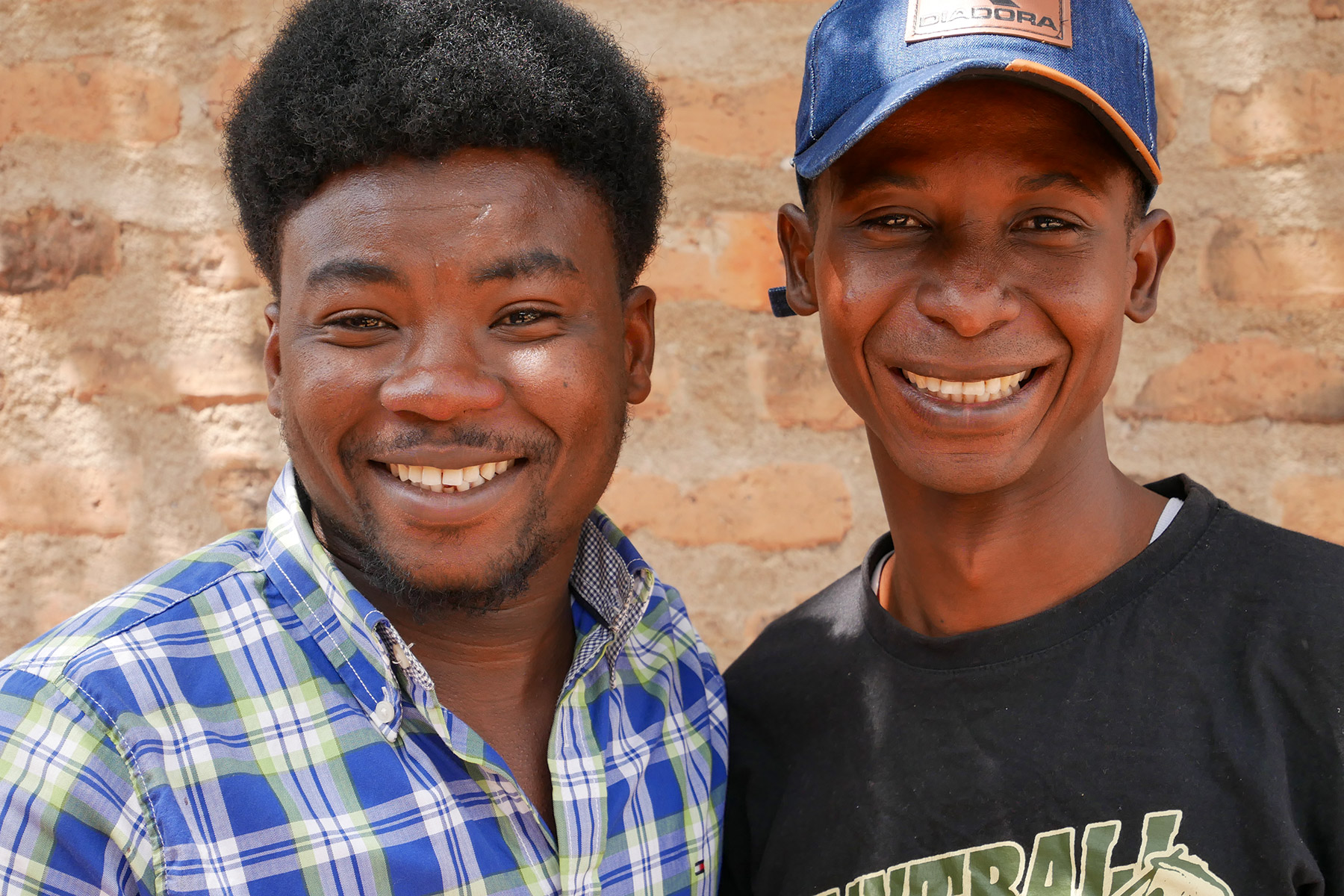
A group of refugees in Dosseye camp in southern Chad who are benefitting from LWFâs project for improved livelihood and access to land. (Photos taken before the outbreak of the COVID-19 pandemic). All photos: LWF/Ophélie Schnoebelen
Conversations with host communities, returnees, refugees in Chad
“We have understood that we have to live in peace with one another. The little we have, we share”, says the village chief.
We are sitting under a tree in Mbikou Miladah, a humble rural village of southern Chad, near the border with the Central African Republic, in the friendly coolness of a February morning. This is my first trip to Chad, the fourth poorest country in the world according to the 2017 Human Development Index, yet the country of Africa with the highest number of refugees proportionally to its population. And these so called “host communities” are about to teach me a lesson on what it means to be a host.
With conflicts in Central African Republic going on since 2004, this southern region of Chad has welcomed thousands of refugees, in addition to Chadian citizens who had fled war decades ago to seek refuge in neighboring countries and have now returned. Both refugees and returnees need access to land to grow their own food and sustain their families, as the monthly 5 euros subsidy from the relief system is not anything close to enough.
With the support of LWF and its local partner ATURAD, committees gathering hosts, refugees and returnees have allowed negotiations to take place in an open and transparent manner. As a result, 110 vulnerable households were able to access seeds and land to cultivate.

Ibrahima, from Danamadja returnee settlement, shows her embroideries, an activity she started with the income generated from selling part of her yield.
Ibrahima, from Danamadja returnee settlement explains: “I am now able to cultivate a piece of land with sesame seeds and potatoes provided by LWF. I was able to pay the school fees for my three children and improve our daily diet. I also started a small embroidery business.”
The next day, Hasmaou Hamadou, president of the refugees in Dosseye camp, tells me his side of the story: “Trust is now increasing thanks to the committees that gather hosts and refugees. ATURAD has given capacity-building sessions to educate us to understand local customs and respect them, and to educate land owners in human rights and promoting African solidarity to improve everyone’s living conditions.”
Hasmaou also said something else that struck me: that the land ultimately belongs to God, as the Bible or the Quran teach us, so no one should be selfish and keep it just because they came first. This is not how legislation or human rights instruments would frame land rights, but this perspective holds a powerful seed for peace.

Hasmaou Hamadou, president of the refugees in Dosseye camp in southern Chad.
LWF and partners, with funding from the German churches’ development agency Bread for the World, created and produced short radio messages addressing common prejudices towards refugees and promoting greater understanding of the value of hospitality.
Of course, Chadian host communities have the same fears as people everywhere else: how will refugees affect my own livelihood? Will I lose out?
They have little, but they share what they have, which does not come without challenges, including pressure on their land and natural resources. But because many were refugees themselves a few decades ago, and because bonds of family and friendship are numerous across the border, they see refugees less as strangers than we do. They know the next refugees could be you and me.
I come home profoundly impacted by this message of friendship, carrying with me a poem written by Ahmat Lamadine, a young refugee from Dosseye:
My name is friendship.
My body does not exist, no one has ever seen me.
But I make friends with everyone.
I have no border, no ethnic group, no religion.
If you want to feel me, laugh and make peace with your neighbor.
Care for everyone.
I am the brother of peace.

Ahmat Lamadine (left) with his friend Abdulame Abba Adoum in Dosseye camp.
Video: Documentary RBA
Find out more about how local action by LWF and local partners with refugees and host communities in Chad is linked to national and international advocacy for sustainable long-term changes.
LWF works together with refugees and host communities in Chad to help meet urgent and long-term priorities. These include the empowerment of communities to improve their livelihoods through agricultural support and vocational training, as well as advocacy at local, national and international level for sustainable solutions.


